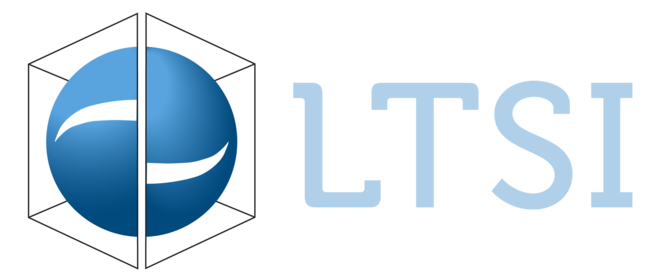Nous recevons au laboratoire le Professeur Javad Alirezaie de l'Université Reyerson de Toronto. A cette occasion Pr Alirezaie fera une présentation intitulée : "Image Denoising Techniques in Sparse Domain: Application in Computed Tomography Noise Reduction" le mercredi 19 juin à 14h, salle de réunion du LTSI sur le Campus de Beaulieu, Bat. 22 Résumé : Computed Tomography (CT) is the most common imaging modality for medical diagnostics. CT is considered to be a high-dose application and is not sensible with respect to patients’ health when multiple follow ups are needed, and in pediatrics. To reduce the exposure effect, the imaging dosage is lowered which leads to reduced signal to noise ratio (SNR). In this talk, denoising methods utilizing the sparse representations and dictionary learning approaches will be discussed. We have extended the concept of adaptive thresholding in transform domain to sparse domain. Our proposed method is a novel enhancement to the adaptive thresholding method. Due to unpredictable nature of noise in the CT images, most denoising schemes fail to perform well. In this work we have proposed a method in which the noise distribution of the image is learnt from the training data and is utilized in denoising the low dose scans. A set of high-dose and their corresponding low-dose images are provided as the training data. The residual of each set of low and high dose images are modeled as noise and are sparsely represented using our proposed Modified DCT dictionary. To denoise the low-dose images, we map the image onto the high CT scans via OMP sparse coding and K-SVD dictionary learning methods. In comparison with other conventional dictionary learning based K-SVD denoising schemes, our proposed method provides a marked improvement in image quality and significantly reduces the computational time. --- Biographie : Javad Alirezaie received his B.Sc. degree in Electrical and Electronic Engineering from Tehran University in 1988. He obtained his M.A.Sc. and Ph.D. degrees in Systems Design Engineering, specializing in Biomedical Engineering from University of Waterloo in 1993 and 1997, respectively. From 1997 to 2000 he was a postdoctoral fellow at McMaster University and an Assistant Professor at Wilfrid Laurier University in Canada. He joined Ryerson University in Toronto 2001. He is currently a full Professor in the Department of Electrical and Computer Engineering and an adjunct professor with the Department of Systems Design Engineering at University of Waterloo. Dr. Alirezaie is founder and director of the computer vision and image processing (CVIP) laboratory at Ryerson. His research interests include biomedical signals and image processing, neural networks, pattern recognition and bioinformatics. He is author and co-author of more than 100 peer reviewed conference and journal papers in these areas. Dr. Alirezaie is a licensed Professional Engineer (PEng) in Ontario, senior member of the IEEE, SPIE, and EMB society.

Navigation principale
- Home
- News
- Equipes
- Organigramme
- La vie du labo
- Travailler au LTSI
- Se rendre au LTSI
- Publications